第41章 MASTER HUMPHREY, FROM HIS CLOCK-SIDE IN THE CHIMNE
I was musing the other evening upon the characters and incidents with which I had been so long engaged; wondering how I could ever have looked forward with pleasure to the completion of my tale, and reproaching myself for having done so, as if it were a kind of cruelty to those companions of my solitude whom I had now dismissed, and could never again recall; when my clock struck ten.
Punctual to the hour, my friends appeared.
On our last night of meeting, we had finished the story which the reader has just concluded. Our conversation took the same current as the meditations which the entrance of my friends had interrupted, and The Old Curiosity Shop was the staple of our discourse.
I may confide to the reader now, that in connection with this little history I had something upon my mind; something to communicate which I had all along with difficulty repressed;
something I had deemed it, during the progress of the story, necessary to its interest to disguise, and which, now that it was over, I wished, and was yet reluctant, to disclose.
To conceal anything from those to whom I am attached, is not in my nature. I can never close my lips where I have opened my heart.
This temper, and the consciousness of having done some violence to it in my narrative, laid me under a restraint which I should have had great difficulty in overcoming, but for a timely remark from Mr. Miles, who, as I hinted in a former paper, is a gentleman of business habits, and of great exactness and propriety in all his transactions.
'I could have wished,' my friend objected, 'that we had been made acquainted with the single gentleman's name. I don't like his withholding his name. It made me look upon him at first with suspicion, and caused me to doubt his moral character, I assure you. I am fully satisfied by this time of his being a worthy creature; but in this respect he certainly would not appear to have acted at all like a man of business.'
'My friends,' said I, drawing to the table, at which they were by this time seated in their usual chairs, 'do you remember that this story bore another title besides that one we have so often heard of late?'
Mr. Miles had his pocket-book out in an instant, and referring to an entry therein, rejoined, 'Certainly. Personal Adventures of Master Humphrey. Here it is. I made a note of it at the time.'
I was about to resume what I had to tell them, when the same Mr.
Miles again interrupted me, observing that the narrative originated in a personal adventure of my own, and that was no doubt the reason for its being thus designated.
This led me to the point at once.
'You will one and all forgive me,' I returned, 'if for the greater convenience of the story, and for its better introduction, that adventure was fictitious. I had my share, indeed, - no light or trivial one, - in the pages we have read, but it was not the share I feigned to have at first. The younger brother, the single gentleman, the nameless actor in this little drama, stands before you now.'
It was easy to see they had not expected this disclosure.
'Yes,' I pursued. 'I can look back upon my part in it with a calm, half-smiling pity for myself as for some other man. But I am he, indeed; and now the chief sorrows of my life are yours.'
I need not say what true gratification I derived from the sympathy and kindness with which this acknowledgment was received; nor how often it had risen to my lips before; nor how difficult I had found it - how impossible, when I came to those passages which touched me most, and most nearly concerned me - to sustain the character I had assumed. It is enough to say that I replaced in the clock-case the record of so many trials, - sorrowfully, it is true, but with a softened sorrow which was almost pleasure; and felt that in living through the past again, and communicating to others the lesson it had helped to teach me, I had been a happier man.
We lingered so long over the leaves from which I had read, that as I consigned them to their former resting-place, the hand of my trusty clock pointed to twelve, and there came towards us upon the wind the voice of the deep and distant bell of St. Paul's as it struck the hour of midnight.
'This,' said I, returning with a manuscript I had taken at the moment, from the same repository, 'to be opened to such music, should be a tale where London's face by night is darkly seen, and where some deed of such a time as this is dimly shadowed out.
Which of us here has seen the working of that great machine whose voice has just now ceased?'
Mr. Pickwick had, of course, and so had Mr. Miles. Jack and my deaf friend were in the minority.
I had seen it but a few days before, and could not help telling them of the fancy I had about it.
I paid my fee of twopence upon entering, to one of the money-